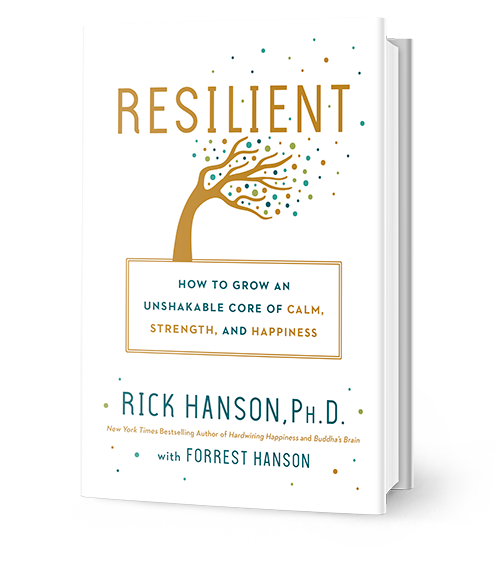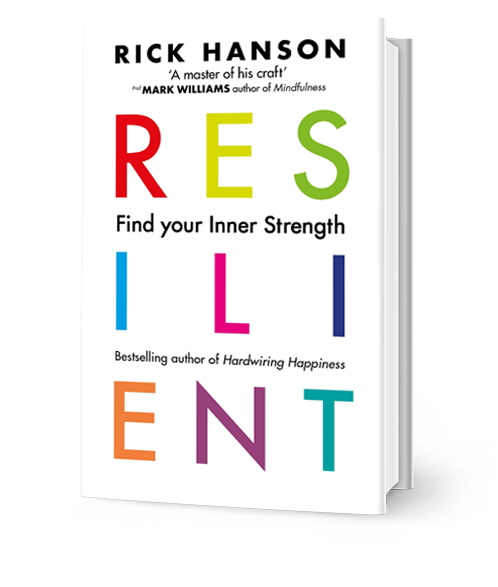07 Mar Enjoy Life
What’s a great way to lower stress, strengthen your immune system, and help you settle back down if you’ve been stressed or worried? Taking time to Enjoy Life.
In my new book Resilient I offer practical strategies for growing the 12 inner-strengths you need for lasting well-being in a changing world.
In the excerpt below, we’ll explore one of those: Enjoying Life.
If a drug company could patent enjoyment, there would be ads for it every night on TV. Enjoyable experiences – such as petting a cat, drinking water when you’re thirsty, or smiling at a friend – lower stress hormones, strengthen the immune system, and help you settle back down if you’ve gotten frustrated or worried.
As enjoyment increases, so does the activity of key neurochemicals, including dopamine, norepinephrine, and natural opioids. Deep in the brain, circuits in the basal ganglia use rising dopamine to prioritize and pursue actions that feel rewarding. If you’d like to be more motivated about certain things – such as exercising, eating healthy foods, or pushing through a tough project at work – focusing on what’s enjoyable about them will naturally draw you into doing them. Norepinephrine helps you stay alert and engaged. In a boring afternoon meeting, finding something, anything, to enjoy about it will keep you awake and make you more effective. Natural opioids, including endorphins, calm your body if you’re stressed and reduce physical and emotional pain.
Together, dopamine and norepinephrine flag experiences as “keepers,” heightening their consolidation as lasting resources inside your brain.
Let’s say you’d like to be more patient at home or work. To grow this inner strength, look for opportunities to experience some patience. Then focus on whatever is enjoyable about it, such as how good it feels to stay calm and relaxed. An experience of patience or any other psychological resource is a state of mind, and enjoying it helps turn it into a positive trait embedded in your brain.
Enjoying life is a powerful way to care for yourself. Think about some of the things you enjoy. For me, they include smelling coffee, talking with my kids, and seeing a blade of grass push up through a sidewalk. What’s on your own list? Not so much the million dollar moments, but the small real opportunities for enjoyment present in even the toughest life: perhaps feeling friendly with someone, relaxing when you exhale, or drifting to sleep at the end of a long hard day. And no matter what is happening outside you, you can always find something to enjoy inside your own mind: maybe a private joke, an imagined experience, or recognizing your own warm heart.
These small ways to enjoy the life that you have contain a big lesson. It’s usually the little things adding up over time that make the largest difference. There is a saying in Tibet: If you take care of the minutes, the years will take care of themselves.
What’s the most important minute in life? I think it’s the next one. There is nothing we can do about the past, and we have limited influence over the hours and days to come. But the next minute – minute after minute after minute – is always full of possibility.
Are there opportunities to be on your own side, bring caring to your pain, accept yourself, and enjoy what you can? Is there something you could heal, something you could learn?
Minute by minute, step by step, strength after strength, you can always grow more of the good inside yourself. For your own sake, and the sake of others as well.
Resilient: How to Grow an Unshakable Core of Calm, Strength, and Happiness is now available. Get your copy today!




